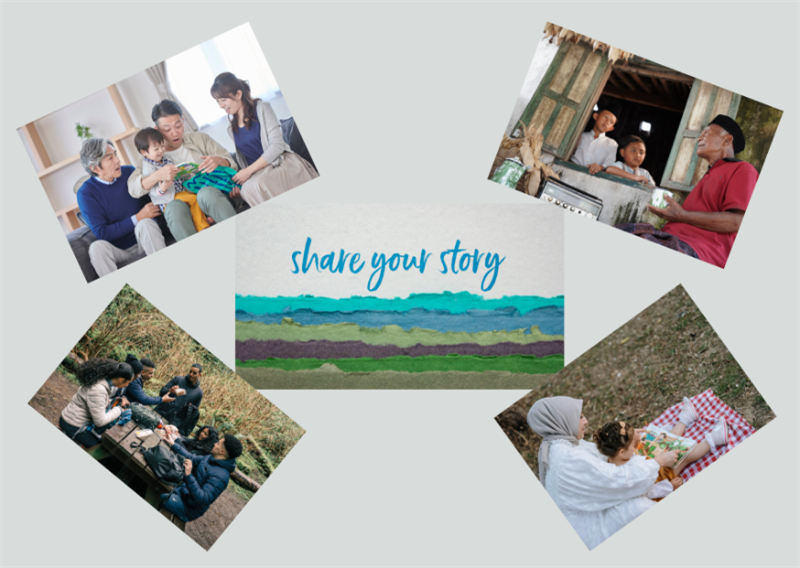12th October 2025

Radical Hospitality: Sharing Stories
One of the privileges of my job is that I get to listen to the stories of such a diverse range of people - and nowhere is that more true than in funeral ministry. Over the past few weeks, I've heard stories of people born into different circumstances, in different places, living different lives. As a group, they have visited over thirty countries in every continent except Antarctica. Each has had a family, a job, different interests. They have had hugely varied journeys of faith. Each one experienced joys and sorrows, good times and difficult times during their lives.
It is these stories, the ordinary and the extraordinary moments that make up our lives, which make us human. And, as we listen to each other's stories, there is much we can learn. We learn what makes each person unique, and we learn what makes them like us. We learn where they come from, and that helps us understand why they think and act as they do.
In the sixteenth century, the English theologian Richard Hooker spoke of faith as being a "three-legged stool", founded upon scripture (the primary authority), reason and tradition (by which he meant the teachings of the Church). More recently, theologians have added a fourth leg: experience. How we experience the world (our perspective) will affect how we read scripture, how we reason and how we react to the tradition. And so, the average Anglican, who is a 22 year old Nigerian woman, may find aspects of a tradition of interpretation built largely on the perspectives of much older, privileged white western men, difficult.This is not to say that the perspectives of privileged white western men are wrong in themselves. The problem comes when these perspectives are seen as the norm, and everybody else's as less valid.
And this is why listening to each other's stories is so important. As we listen, we encounter the other person as a human being in all their fullness. We realise that our own perspective is not the only valid one and, as we open our hearts to one another, we learn that God's love is big enough to contain us both.
In Acts 10, Peter, a Jew, is sent to Cornelius, a Gentile, to proclaim the gospel. As Peter and his companions pray for these Gentile converts, the Holy Spirit descends on them in power. Later, Peter reports back to the church in Jerusalem, saying "If God gave them the same gift that he gave us when we believed in the Lord Jesus Christ, who was I that I could hinder God?" (Acts 11:17). It's often been said that Peter changed more than Cornelius in this story!
As we continue to think about our human diversity during this month of October, I encourage you to go intentionally to someone you wouldn't normally speak to and simply share stories. Who knows what that sharing could lead to?
